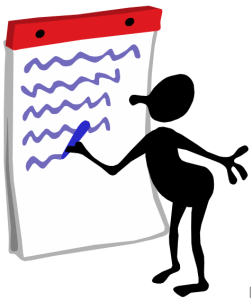To facilitate consensus around simple decision-making, consider the following scenario and do not forget to help the group articulate the purpose of the project your meeting supports.
Let us say for example that four of us are taking a trip from Minneapolis to New Orleans. Therefore, consider why we are going, the options, and how we might get there. Moreover, take into account the WHY WHAT HOW of any decision.
Options (HOW)
- Airplane
- Automobile (motorized 4-wheel vehicle)
- Bicycle
- Boat (or, canoe)
- Bus
- Hitchhike
- Horseback
- Limousine rental
- Taxi cab
- Walk
- Etc.
Consequently, to decide among the competing options we would consider the constraints and requirements. Therefore, let us call those considerations, the decision criteria. Because they provide an understanding of WHAT we must consider in our decision. Additionally, consider some of the decision criteria, as follows:
Criteria (WHAT)
- Accessibility
- Comfort
- Cost
- Ecological impact
- Expected arrival date (if any)
- Fears or phobias
- Length of trip
- Quality of participants (e.g., physical vitality)
- Quantity of participants
- Time of year
- Etc.
Purpose (WHY)
To effectively build consensus around which option to select, the criteria are essential. However, we are missing a primary component; i.e., WHY are we taking the trip? Frequently, groups fail to understand or build the necessary purpose statement that underlies effective decision-making. As facilitators and participants, since the purpose may be clear in our own minds, we assume that everyone else’s purpose is the same as ours.
Prove it. Make certain you facilitate and codify a purpose statement, whether using the MGRUSH Purpose Tool or some other method; the purpose of the trip is essential to deciding HOW we are going to get to our destination.
______
Don’t ruin your career by hosting bad meetings. Sign up for a workshop or send this to someone who should. MGRUSH workshops focus on meeting design and practice. Each person practices tools, methods, and activities every day during the week. Therefore, while some call this immersion, we call it the road to building high-value facilitation skills.
Our workshops also provide a superb way to earn up to 40 SEUs from the Scrum Alliance, 40 CDUs from IIBA, 40 Continuous Learning Points (CLPs) based on Federal Acquisition Certification Continuous Professional Learning Requirements using Training and Education activities, 40 Professional Development Units (PDUs) from SAVE International, as well as 4.0 CEUs for other professions. (See workshop and Reference Manual descriptions for details.)
Want a free 10-minute break timer? Sign up for our once-monthly newsletter HERE and receive a timer along with four other of our favorite facilitation tools, free.

Terrence Metz, president of MG RUSH Facilitation Training, was just 22-years-old and working as a Sales Engineer at Honeywell when he recognized a widespread problem—most meetings were ineffective and poorly led, wasting both time and company resources. However, he also observed meetings that worked. What set them apart? A well-prepared leader who structured the session to ensure participants contributed meaningfully and achieved clear outcomes.
Throughout his career, Metz, who earned an MBA from Kellogg (Northwestern University) experienced and also trained in various facilitation techniques. In 2004, he purchased MG RUSH where he shifted his focus toward improving established meeting designs and building a curriculum that would teach others how to lead, facilitate, and structure meetings that drive results. His expertise in training world-class facilitators led to the 2020 publication of Meetings That Get Results: A Guide to Building Better Meetings, a comprehensive resource on effectively building consensus.
Grounded in the principle that “nobody is smarter than everybody,” the book details the why, what, and how of building consensus when making decisions, planning, and solving problems. Along with a Participant’s Guide and supplemental workshops, it supports learning from foundational awareness to professional certification.
Metz’s first book, Change or Die: A Business Process Improvement Manual, tackled the challenges of process optimization. His upcoming book, Catalyst: Facilitating Innovation, focuses on meetings and workshops that don’t simply end when time runs out but conclude with actionable next steps and clear assignments—ensuring progress beyond discussions and ideas.




